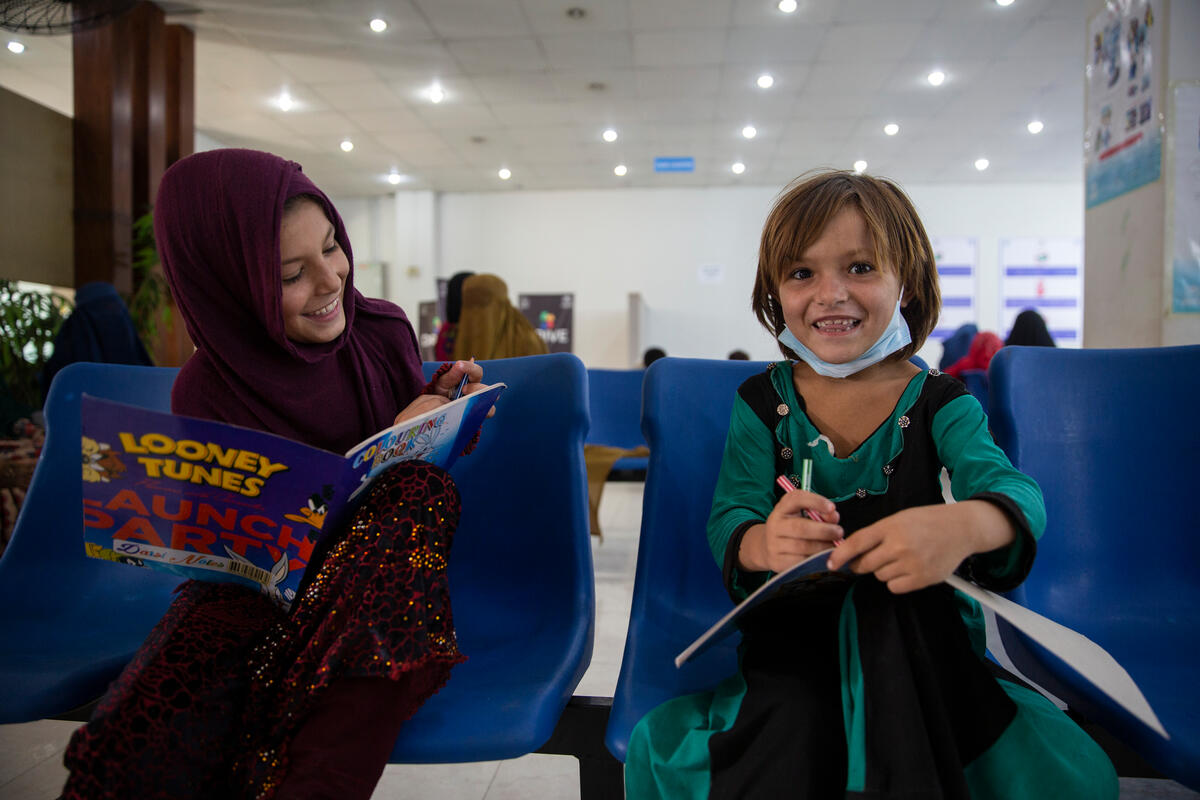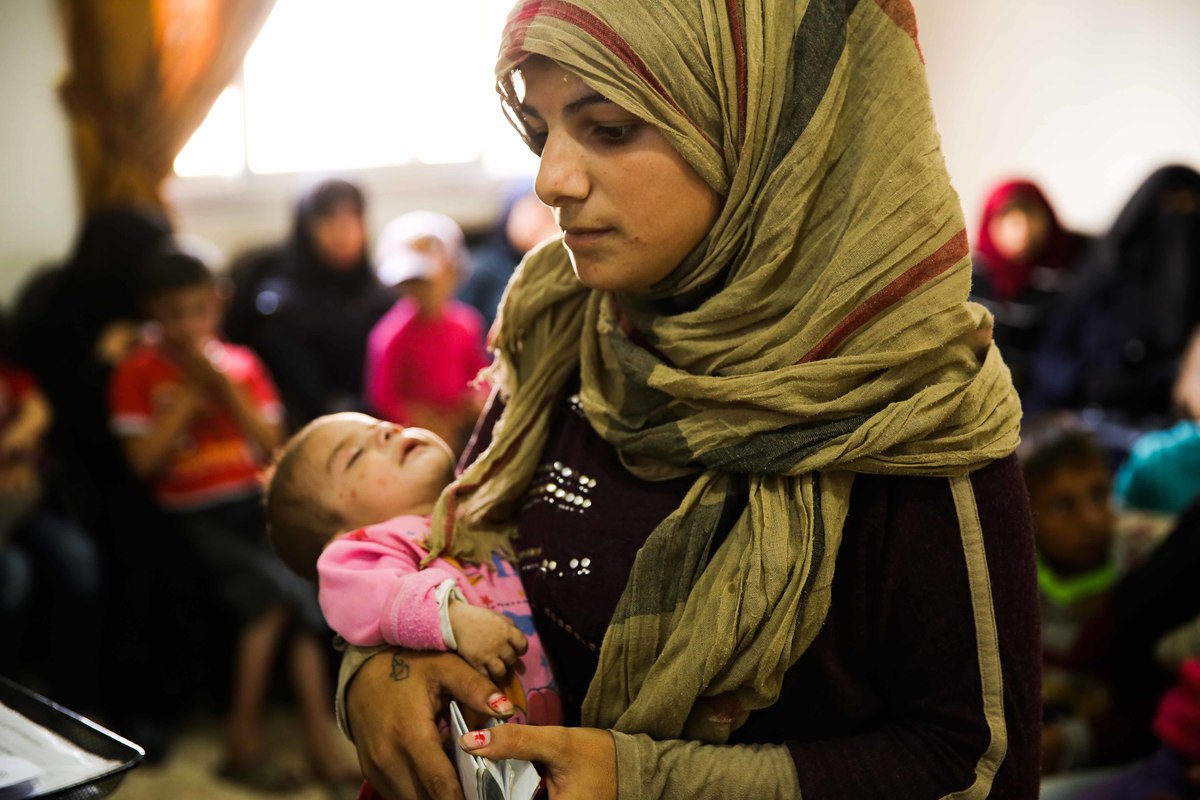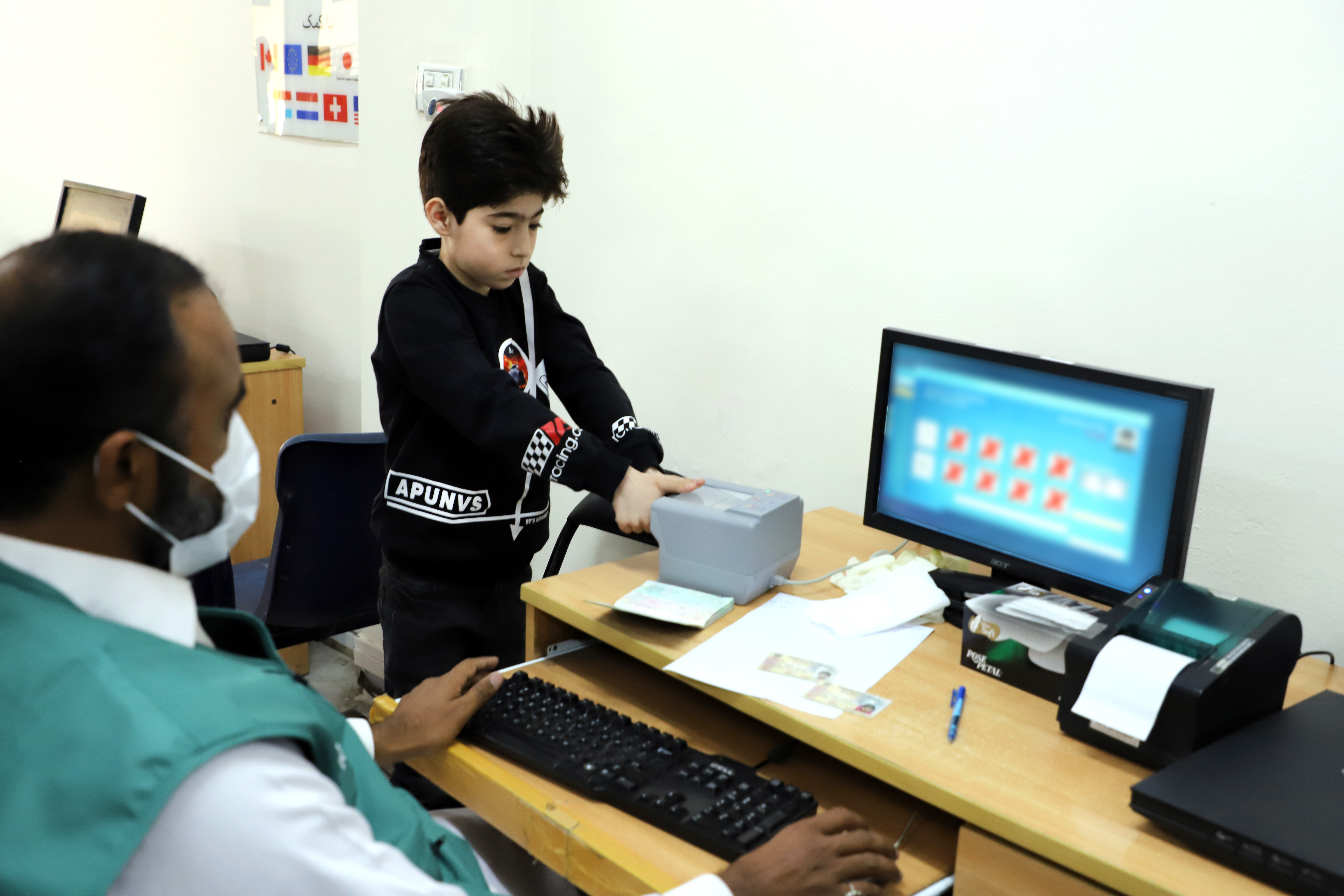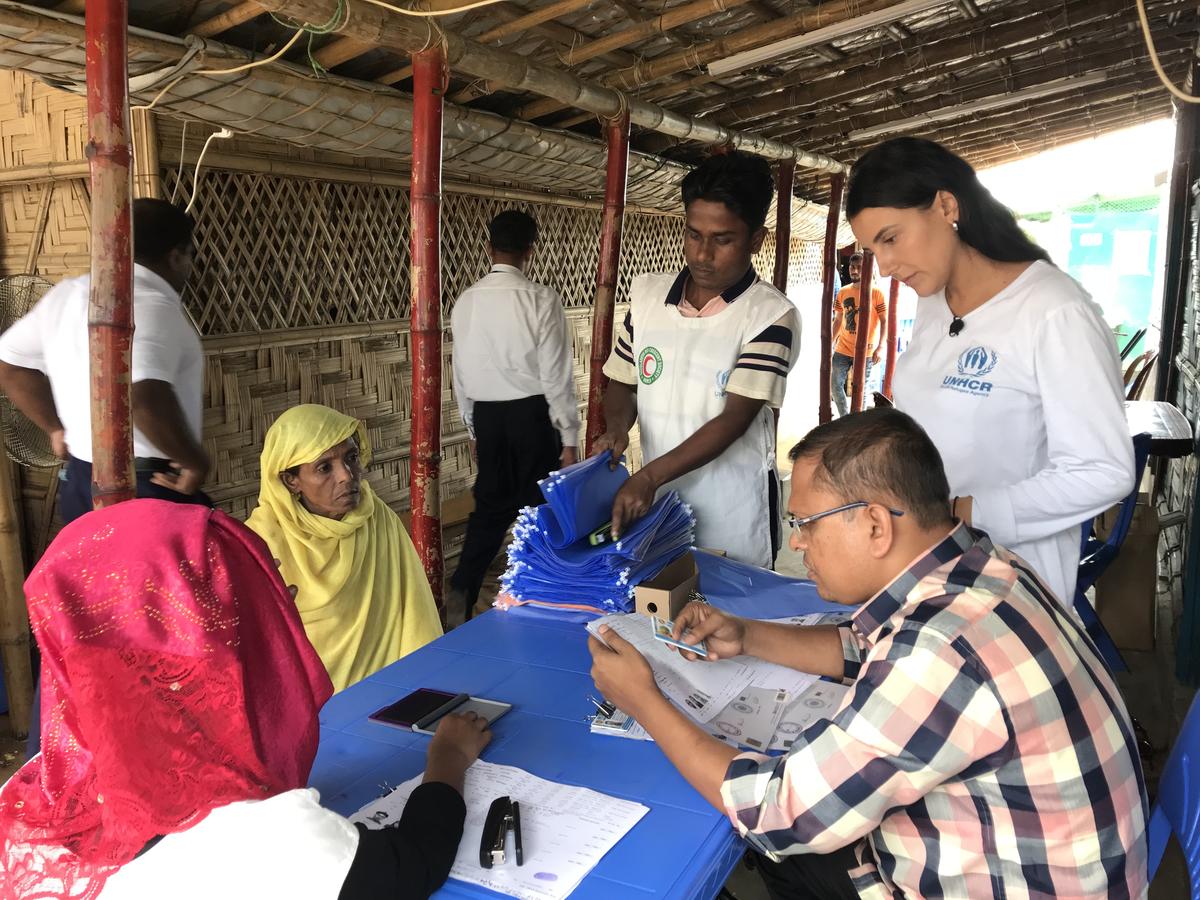Shuras urge more to come forward as Pakistan registers 1 million Afghans
Shuras urge more to come forward as Pakistan registers 1 million Afghans

SARANAN/MALGAGAI CAMPS, Pakistan, December 19 (UNHCR) - As Pakistan's drive to register Afghans in the country crossed the one million mark on Tuesday, efforts were intensifying to reach out and encourage more Afghans to register themselves before the exercise ends on December 31.
Since the Pakistan government registration operation started in October, more than 631,000 Afghans have been registered in North-West Frontier Province, some 174,000 in Balochistan, above 122,000 in Punjab, about 67,000 in Sindh and around 6,000 in Pakistan-administered Kashmir. Some 48 percent of those registered are females, and 51 percent are children under the age of 14.
However, with a target population of 2.4 million Afghans in Pakistan, registration still has a long way to go. This is especially true in the south-western province of Balochistan, where harsh winter conditions as well as cultural and political sensitivities have resulted in a low turnout. To urge more Afghans to come forward and be counted, the government and UNHCR have been conducting an intensive information campaign about the objectives of the exercise.
"Afghans have been receptive to messages sent to them through radio, newspapers and TV channels," said Vivian Tan, who heads the information campaign for the registration in Pakistan. "But the Afghan population here is scattered and has limited access to mass media. That's why face-to-face interactions and shuras are crucial to getting the message out."
Shura is a term used by Afghans for consultative and information-sharing sessions. Even before registration started, teams from Pakistan's Commissioner for Afghan Refugees, Afghanistan's Ministry for Refugees and Returnees (MoRR) and UNHCR have been visiting camps and urban clusters to clarify issues and gather feedback on the registration process.
On a sunny winter day against a backdrop of snow-covered mountains in Balochistan's Saranan camp, a group of young and old Afghans with turbans and beards gathered in a circle around UNHCR staff, bombarding them with questions: "You have to bring the registration centre closer to the refugee camp.... What about those who were left out of the census?.... We have people who have gone to Saudi Arabia and Iran for work, how will they get the card?"
Puffing on a cigarette, Haji Khair Mohammad Khan, an elder originally from Sar-i-Pul in northern Afghanistan, brought some order to the shura meeting, asking elders to speak one by one.
"As Afghans, we have been abiding by all laws of the land and announcements that the government has made and we are ready to offer maximum cooperation in the registration," said Haji Khair. "But there are Afghans who go to the centres and are told that you cannot be registered as you were not in the census. This is discouraging us."
Indrika Ratwatte, UNHCR's assistant representative in Pakistan, stepped in. "The registration guidelines are very clear. Only those who were counted in the 2005 census can be registered, so it makes no sense for others to try their luck. But there are many eligible Afghans who should register themselves now. There are only a few weeks left to the registration deadline, so you have to hurry."
Every effort has been made to reach out to even the most isolated Afghan communities. After a four-hour drive on a rough dirt track from Balochistan's provincial capital Quetta, the shura team arrived at remote Malgagai camp.
The shura meeting started with good news for the camp's inhabitants. "The registration centre starts work from December 17 to December 31 in your camp. So you are requested to cooperate with officials in this regard," announced Imdad Ullah Khan, director for Afghanistan's MoRR in Balochistan.
Tawakal Khan, a vocal youngster among the Afghan elders, made a proposal. "We can offer you our help to establish the registration centre in a school, which will have enough space to accommodate your machines and staff conducting the registration."
Every registered Afghan above the age of five receives a Proof of Registration card that is valid for three years and that recognises the bearer as an Afghan citizen temporarily living in Pakistan. Children under five are listed on their mother's card. Besides providing Afghans with their first ever official documentation in exile, registration seeks to profile the Afghan population in Pakistan to help in the search for durable solutions.
The US$6-million registration exercise is conducted by Pakistan's National Database and Registration Authority and has so far received funds from the European Commission, the United States and the United Kingdom.
By Babar Baloch in Saranan and Malgagai camps, Pakistan








